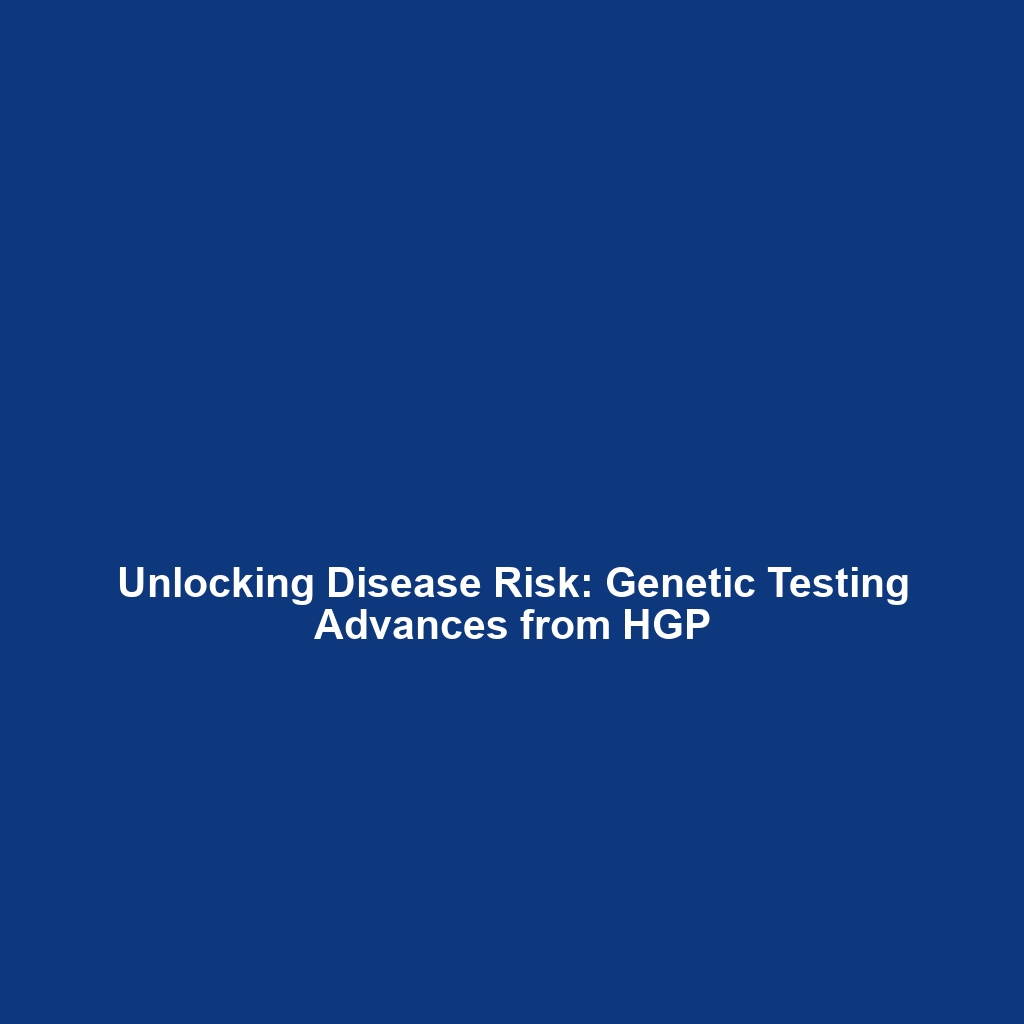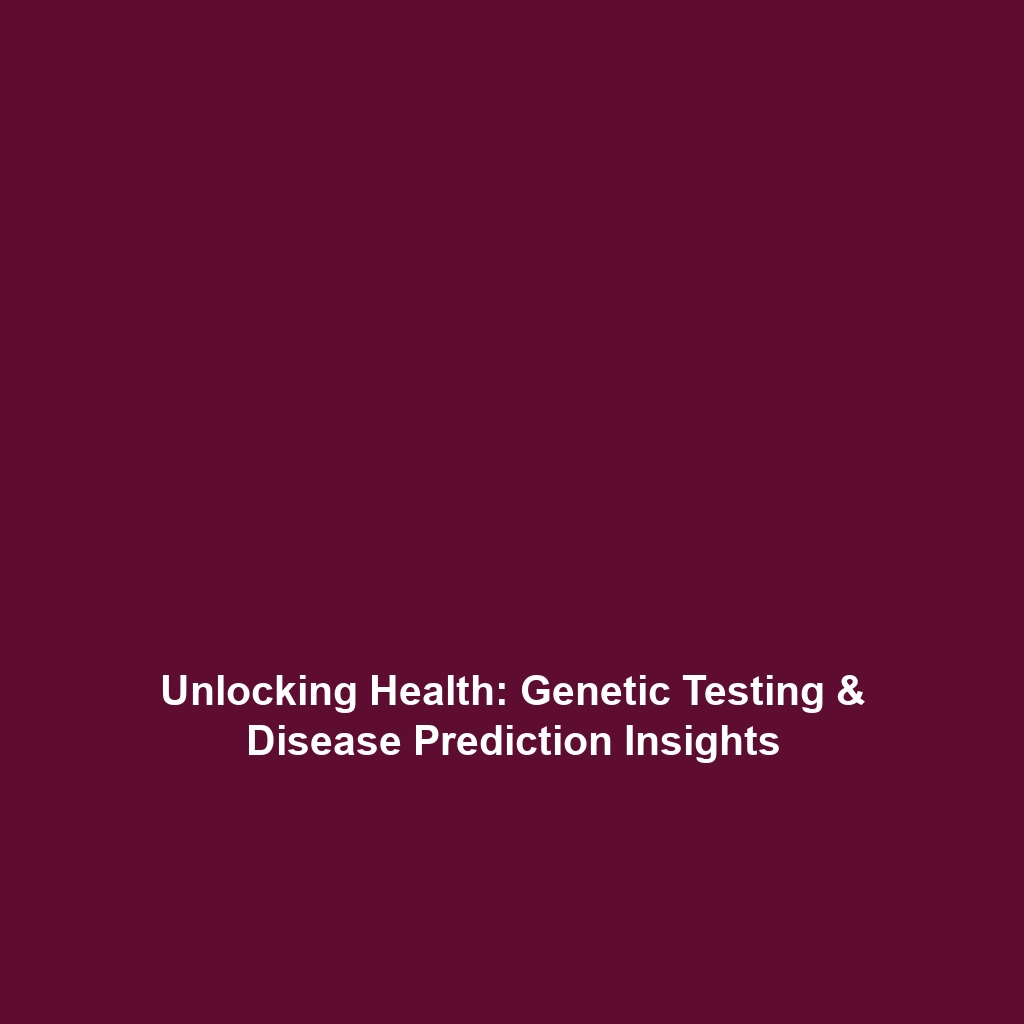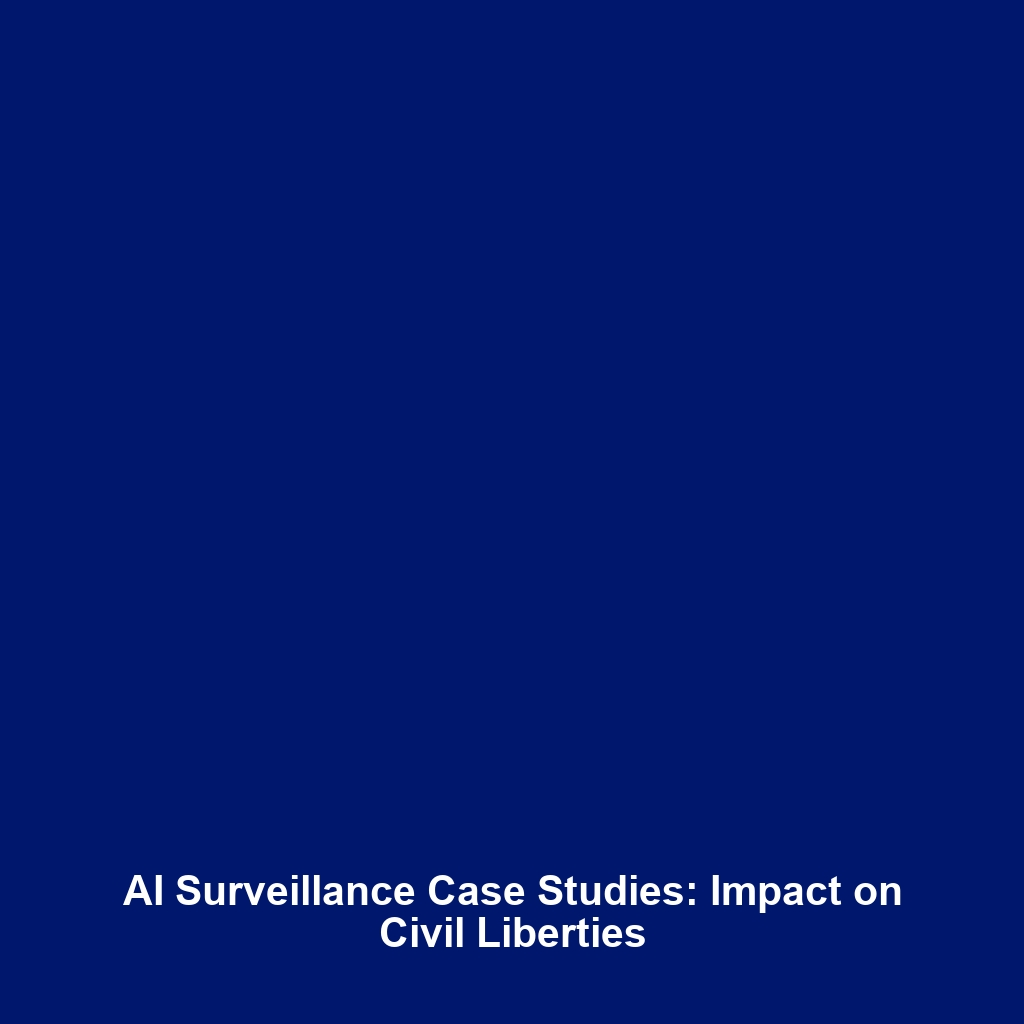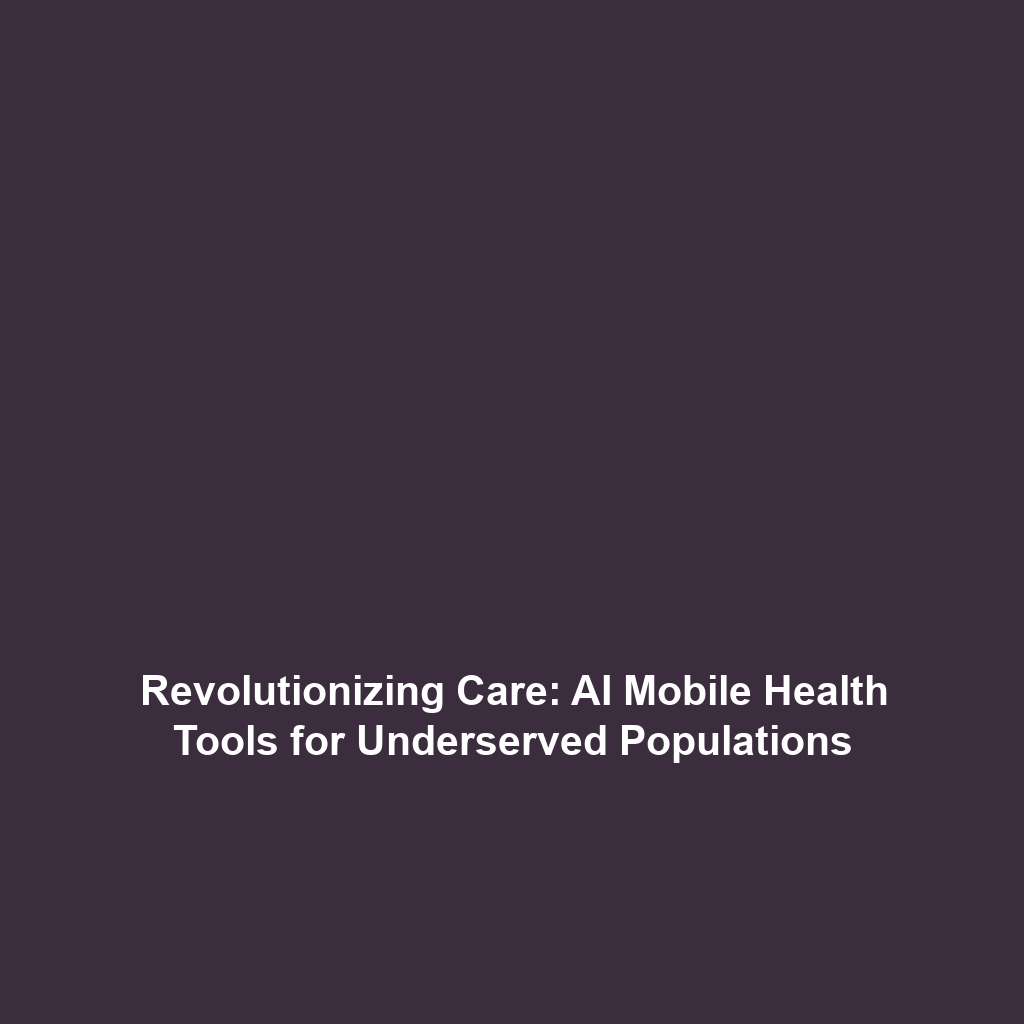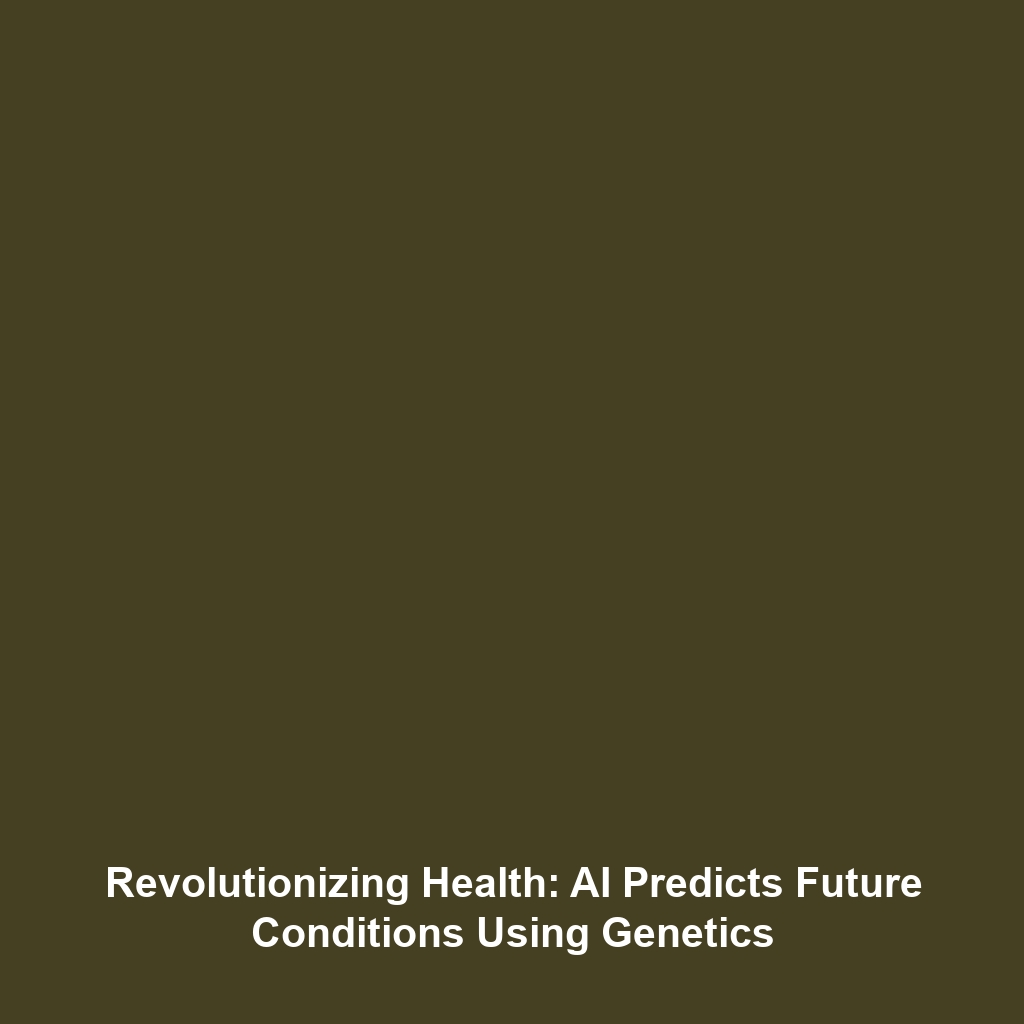The Impact of the Human Genome Project on Genetic Testing
Introduction
The Human Genome Project (HGP) has revolutionized our understanding of human genetics and has fueled the development of genetic testing that identifies disease risk, carrier status, and facilitates prenatal screening. This groundbreaking initiative, which successfully mapped the entire human genome, has paved the way for personalized medicine and advanced preventive healthcare. As we delve into the relationship between the HGP and these genetic tests, it becomes evident that the implications for public health and individual well-being are profound.
Key Concepts
Understanding Genetic Testing
Genetic testing refers to a type of medical test that analyzes chromosomes, genes, and proteins to identify changes or abnormalities. The advancements made possible by the HGP have shown how this testing can provide insights into a person’s predisposition to certain diseases, such as the BRCA mutations linked to breast cancer.
Carrier Status and Prenatal Screening
Carrier status tests detect whether an individual carries a gene for a genetic disorder, which is crucial for family planning. Prenatal screening allows for the examination of the fetus for genetic abnormalities, greatly informing expectant parents of potential health conditions.
Applications and Real-World Uses
The HGP’s impact on genetic testing manifests in several practical applications:
- Predictive Testing: Identifying genetic risks in asymptomatic individuals.
- Carrier Testing: Helping couples understand their risk of passing genetic disorders to offspring.
- Prenatal Screening: Assisting in early detection of genetic conditions in fetuses.
- Pharmacogenomics: Personalizing medication based on genetic profiles.
These applications illustrate how genetic testing, inspired by the HGP, is used to inform healthcare decisions and improve patient outcomes.
Current Challenges
Despite the advancements, several challenges remain in the field of genetic testing, including:
- Ethical considerations regarding privacy and consent.
- Complex interpretations of genetic information.
- Disparities in access to testing and healthcare.
- Potential for genetic discrimination.
These issues underline the importance of addressing ethical and practical considerations within the realm of the Human Genome Project and genetic testing.
Future Research and Innovations
The horizon of genetic testing is bright, with significant research focusing on CRISPR technology, gene editing, and the development of more comprehensive testing panels that could soon identify a broader range of genetic conditions. Future innovations promise to make genetic testing faster, more accurate, and cost-effective, shaping the future of personalized medicine.
Conclusion
The advancements fueled by the Human Genome Project have markedly transformed genetic testing, enabling us to assess disease risk, carrier status, and prenatal conditions like never before. As the field continues to evolve, addressing both technical and ethical challenges will be imperative. Consider exploring how genetics impacts healthcare and stay informed about the future of genetic testing.
